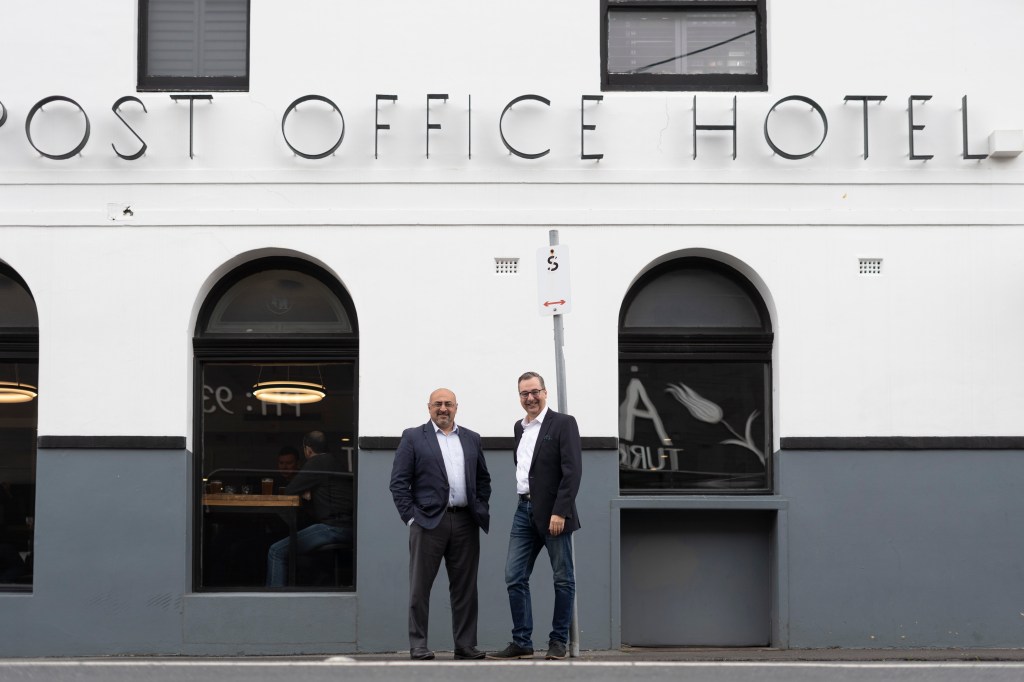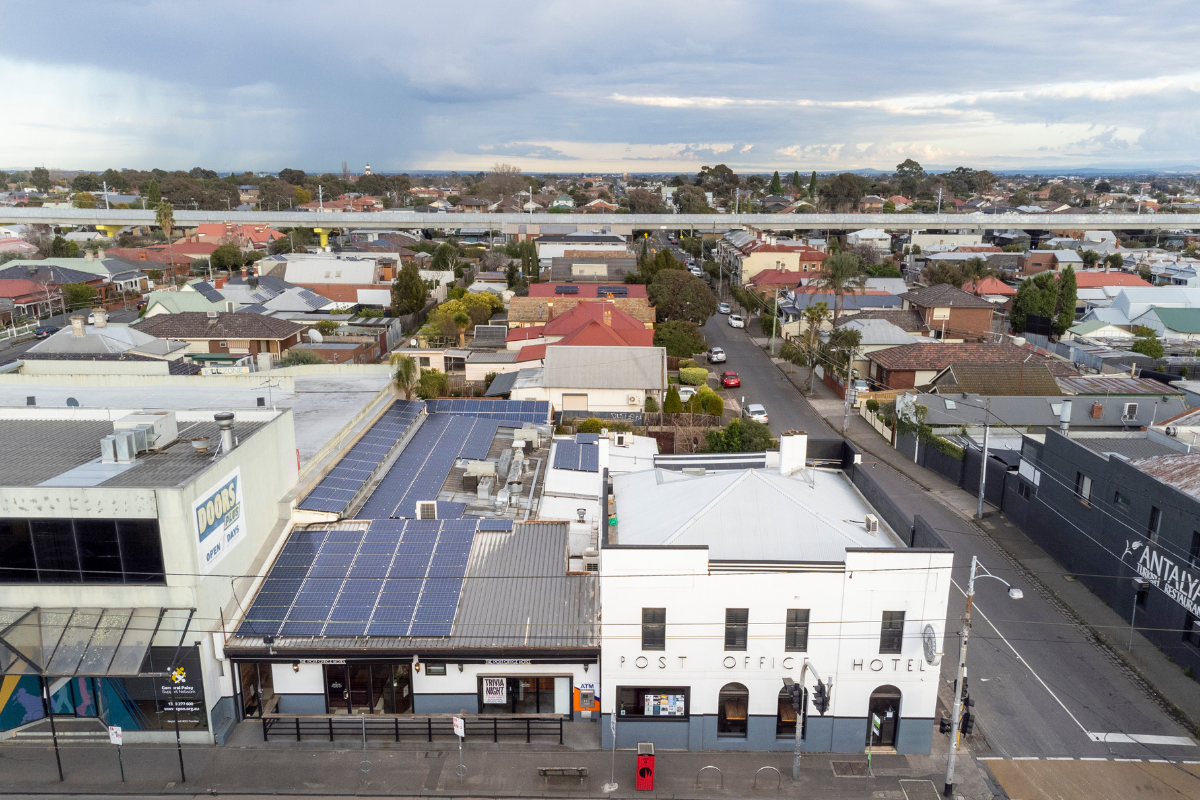Danial Caneva, owner of the Post Office Hotel in Melbourne’s Coburg suburb, explained to Australian Hotelier how he is making money back via his solar array.
Caneva, who has owned the pub for about 13 years, explains that he initially installed solar panels on the pub around five years ago.
“Obviously, I had all the roofspace, and it seems financially and environmentally, probably the right thing to do,” Caneva says.
After introducing the solar panel installation, Caneva explains that he has “pretty much halved” the pub’s power bill – even with most of the Post Office’s power being consumed at night.
Since then, Caneva’s pub has joined up to a ‘Distributed Generation Network’ managed by South Street Energy. It is a collection of ‘small scale solar, wind and biogas generation systems’, such as the solar array at the Post Office, that can sell back electricity to the wholesale market when the demand for energy increases.
Caneva told Australian Hotelier that he initially got involved with South Street after talking to his electrician about power usage and the state of rebates.
“He put me onto Marco [Bogaers, managing director of South Street] who said ‘We can do this, when [energy demand] is higher we can get you better rates,” Caneva says.
“I think I was the first or second person to do it, and I thought – ‘Yeah, I’ll be your guinea pig, no worries.’”
Since the recent increases in power costs, Caneva says he’s received over $1,200 in the last two to three months in rebates.
“I’m guessing when the summer kicks in, and I’m generating three times as much solar, I’m guessing that might be a lot higher,” Caneva continues.
Bogaers explained that South Street’s solutions can be applied to any renewable energy system, to maximise its value to the owner, and that the ambition was to incentivise the adoption of green power.
“Our goal is to encourage greater take up of renewable generation systems by delivering more than electricity bill reductions,” Bogaers said.
The local federal MP, Peter Khalil, has hailed pub’s collaboration with South Street as an example of positive action on sustainability.
“This is a great example of how innovative Australian companies are working together to take action on climate change,” Khalil says.
“This is how we will hasten the transition to renewable energy, by making it easier for the owners of small and family businesses to operate renewable generation systems and participate in the energy market.”

For Caneva, the use of solar panels and South Street’s services are part of a larger move towards creating a more sustainable venue.
“We changed everything to LED [lightbulbs] a long time ago, and I’ve constantly upgraded that over time. We’ve swapped all our dishwashers over to more water-efficient systems,” the publican adds.
Finally, the Post Office’s owner had words of encouragement for any fellow operators thinking of taking the leap into renewables, and in particular, South Street’s trade system.
“If you’ve got the money to do so, why wouldn’t you? Most pubs are pretty big, there’s a lot of [roof] space,” Caneva outlines.
“You get a payback, over time, and your bills reduced. And then when you’re selling it back, we’re not talking big money here you’re getting back, but it’s still money.”
And at a time of increasing power bills and inflation, this is likely to be a tempting proposition for pub-owners around Australia.

